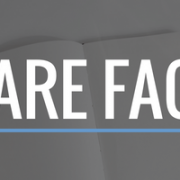BARE Shares – A $600 Billion Employee Engagement Problem Solved: Empathy
Employees who are engaged significantly lower the risk of turnover for the company. As engaged employees are more invested in the success of the company they also become more loyal. That hasn’t stopped the topic being any less confusing. But engagement doesn’t have to be a mystery.
Here, BARE International shares an article by Shep Hyken for Forbes on ‘A $600 Billion Employee Engagement Problem Solved: Empathy.’
‘Today’s workforce is experiencing everything from an alarming skilled labor shortage to an increasing lack of employee engagement that concerns every business – no matter if you’re a startup or a Fortune 100 company. Gallup research shows that the average U.S. employee is not only unengaged at work, but half of U.S. employees are actively searching for a new job. This war for skilled and engaged talent can impact businesses’ bottom lines by more than $600 billion in lost productivity per year. That’s according to Rae Shanahan, Chief Strategy Officer at Businessolver.
There’s no denying, $600 billion in lost productivity is a big number. The way to fight this is with empathy. According to Shanahan, a culture that fosters empathy in the workplace is one of the best ways to create an engaged workforce that combats the loss of productivity and more.
The phrase employee engagement is a popular term. The benefits are almost obvious. An organization with an engaged workforce has higher employee satisfaction, lower turnover, higher productivity, increased profitability, and higher levels of customer satisfaction and loyalty. Just Google “The benefits of an Engaged Employee” and you’ll find plenty of research to support this – and much more. Behind every engaged workforce, you’ll find empathy.
According to the 2017 Businessolver Workplace Empathy Monitor:
- The majority (85 percent) of employees agree that empathy is often undervalued by their employer.
- Almost one-third of employees (30 percent) don’t feel the company they work for is empathetic, and about half (51 percent) feel that organizations and companies as a whole are not empathetic.
- Just over one-third of employees (37 percent) believe their company doesn’t keep up when it comes to empathy. And specifically, women (45 percent) are more likely to feel this way than men.
- Six out of 10 employees (60 percent) would be willing to take slightly less pay if their employer showed empathy, and 78 percent of employees would leave an employer for equal pay if the other company was empathetic.
- Over three-fourths (77 percent) of employees would be willing to work longer hours for an empathetic employer.
- A lack of empathy could cause more employee turnover as 72 percent of employees would consider leaving their current company if they displayed less empathy. Millennials (78 percent) are more likely than Boomers (66 percent) to consider this.
- And, 92 percent of employees would be more likely to stay with a company if they empathized with their needs.
These are pretty compelling stats. So, let’s start with understanding empathy. The short Google definition defines empathy as “the ability to understand and share the feelings of others.”
That sounds pretty simple. But, apparently, simple may not be easy. The results of the Businessolver report shows understanding employee’s feelings and needs to drive a better workplace experience will not only increase employee engagement but also strengthen productivity and retention. And, CEOs agree that empathy must improve, as a lack of it creates an issue with employee engagement that negatively impacts the bottom line.
While entire books are written about workforce engagement and empathy, here are some quick tips that anyone can follow to be more empathetic:
- Listen: A big part of empathy is listening. Employees want to feel heard. They want their thoughts and feelings, especially as it pertains to the workplace, to be valued.
- Acknowledge and Relate: Reflect back to the employee. Make statements that prove you’re listening and can relate to their issue.
- Prove Understanding: If an employee is sharing their thoughts, ideas, concerns, and suggestions, show them you understand. Ask pertinent questions to gain more information and further understanding.
- Be Genuine: Any lack of sincerity will work against your goal to show empathy.
- Trust: Along the lines of sincerity, there must be a level of mutual trust. The concept of trust in business relationships between a company and its customers, and the employer and employees is paramount to a good relationship where employees are engaged.
- Show Appreciation: One of the strongest phrases you can say to an employee is “Thank you.” A sincere sign of appreciation shows the employee that they are valued.
Being empathetic doesn’t mean you must agree or acquiesce to every employees’ request. What it does mean is that you’re accessible and approachable, a leader or co-worker others can trust, and are open to listening and understanding the other person’s views and thoughts. When this happens, employees feel more comfortable, are more motivated, and more committed to excellence.‘
Read the full article from the source here.
Quality Assurance & Brand Audits from BARE International.
Your company spends a big chunk of the budget on promotions and pricing strategies. Are you monitoring them to make sure they are being executed correctly? Audits can be executed covertly without your staff being aware that the audit is taking place, or as an in-depth announced audit. The benefits of an audit include:
- Analyze and understand your company’s financial records.
- Identify key areas for improvement in your company.
- Assess risks, economy, efficiency and quality.
- Evaluate new technology.
- Uncover fraudulent or other illegal activities within your company.
- Reinforce and strengthen internal control.
There’s no better time to discover if your desired brand image is being represented the way you envisioned or evaluate your employees to improve training and reward top performers. BARE International’s customer experience research can provide you with critical data to make meaningful business decisions. Want to know more? Contact us today.











